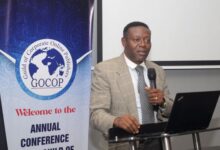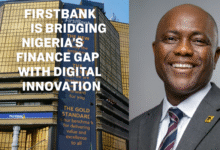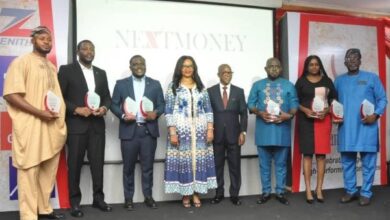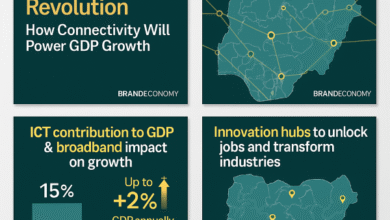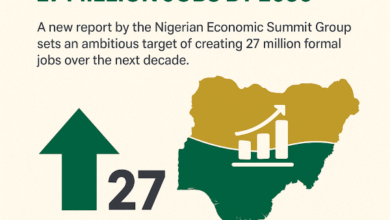Why NLNG Withheld the 2025 Nigeria Prize for Science: Upholding Integrity, Inspiring Higher Standards
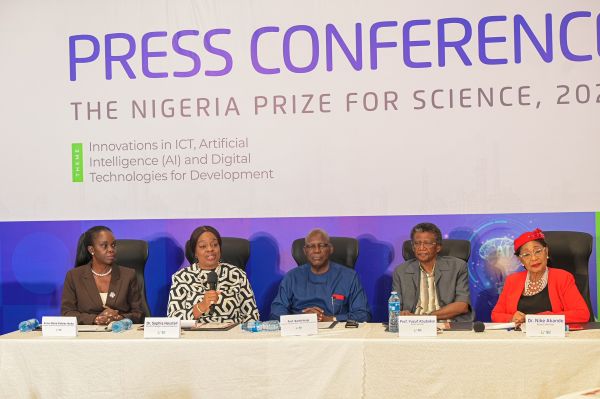
Upholding the Gold Standard of Scientific Excellence
In a bold reaffirmation of its commitment to scientific integrity, the Advisory Board of The Nigeria Prize for Science, sponsored by the Nigeria LNG Limited (NLNG), has announced that no winner will be declared for the 2025 edition of the prestigious award.
The decision, though rare, underscores NLNG’s uncompromising stance on excellence, originality, and scientific rigor — the very values that have made the Prize Africa’s most respected recognition for scientific achievement.
At a press briefing in Lagos, the Chairman of the Advisory Board, Professor Barth Nnaji, revealed that after extensive evaluation of 112 submissions, none met the exceptionally high standards required for the award.
“The Prize is not merely about rewarding scientific work; it is about safeguarding creativity, originality, and intellectual rigor that define truly exceptional research,” Prof. Nnaji stated.
He explained that to declare a winner despite quality concerns would “betray public trust and diminish the legacy of the Prize itself.”
Protecting the Reputation of Africa’s Most Prestigious Science Award
Now in its 21st year, The Nigeria Prize for Science has established a global reputation for identifying and celebrating innovations with real-world impact.
The 2025 decision, however, reinforces a deeper message — that credibility outweighs convenience.
“Lowering the bar is not an option,” Prof. Nnaji said. “Our mission is to maintain the sanctity of scientific merit. We would rather have no winner than celebrate mediocrity.”
The Advisory Board’s stance reflects the Prize’s foundational philosophy: science should advance humanity, not just generate data or theories.
By declining to award the ₦100,000 prize money this year, the Board signals to Nigeria’s scientific community that excellence is non-negotiable.
Encouraging a Culture of Global-Standard Research
Despite the outcome, the Advisory Board praised all 112 entrants for their effort and intellectual courage.
Prof. Nnaji noted that participation itself reflects discipline, passion, and the desire to contribute to human progress, but urged scientists to pursue innovation, mastery, and lasting impact beyond effort alone.
“Excellence goes beyond effort; it demands originality, mastery of craft, and the courage to challenge conventional limits,” he said.
He called on Nigerian researchers to view this outcome not as discouragement, but as a challenge to elevate their work to global scientific benchmarks.
“The Nigeria Prize exists to celebrate the finest achievements — those that withstand scrutiny, embody originality, and advance human development,” he emphasized.
Historical Context: Integrity Over Popularity
This is not the first time the Nigeria Prize for Science has produced no winner.
The Prize was similarly withheld in 2005, 2007, 2011–2016, and 2021, reflecting a consistent standard of honest adjudication rather than symbolic celebration.
Each of these moments, according to BRANDECONOMY analysis, has served as a moral checkpoint for the scientific community, reminding stakeholders that Nigeria’s aspiration for global leadership in innovation requires depth, not just participation.
The NLNG’s commitment to meritocracy has made the Prize a benchmark for other African science awards — a model that values quality over quantity and impact over prestige.
Renewed Focus on Artificial Intelligence and ICT
In an important move to sustain momentum and relevance, the Advisory Board announced that the 2025 theme — “Innovations in ICT, Artificial Intelligence (AI), and Digital Technologies for Development” — will be repeated for the 2026 edition.
This decision, according to the Board, aims to attract a wider spectrum of innovators, particularly in the fast-evolving field of AI and digital technology, where Nigeria’s potential remains largely untapped.
The Board believes that a second call for submissions under the same theme will deepen engagement, encourage cross-disciplinary collaboration, and stimulate more groundbreaking research capable of transforming Nigeria’s tech ecosystem.
Meet the Judges: A Panel of Global-Standard Experts
The Advisory Board unveiled a distinguished panel of judges drawn from academia, industry, and technology investment sectors — a reflection of the Prize’s global alignment.
- Dr. Omobola Johnson – Chairperson of the Panel of Judges; Senior Partner at TLcom Capital and former Minister of Communication Technology (2011–2015). She has spent over 25 years at Accenture, leading projects in technology strategy and innovation across Africa.
- Prof. Collins Udanor – Associate Professor of Computer Science (Artificial Intelligence) at the University of Nigeria, Nsukka. He leads the High-Performance and Intelligent Computing Group (HiPIC) and has received grants from UNESCO-HP, Google, Nvidia, and TETFund.
- Prof. Aminu Muhammad Bui – Renowned AI researcher at Usmanu Danfodiyo University, Sokoto, specialising in decision-support systems, data mining, and educational technology applications.
This diverse panel brings a wealth of experience across AI, data analytics, and innovation investment, ensuring that future evaluations remain objective, globally relevant, and technically rigorous.
A Call to Nigeria’s Scientific Vanguard
The message from the Board is clear — Nigeria’s path to global competitiveness in science and innovation lies in depth, originality, and application.
The decision to withhold the Prize is not punitive; it is a moral and intellectual reset for Nigeria’s research community.
As Africa’s largest economy, Nigeria’s ability to drive science-led growth will depend on its willingness to fund, mentor, and reward authentic innovation rather than surface-level research.
The repetition of the ICT and AI theme for 2026 aligns with global trends that position digital transformation as the next frontier for African development.
BRANDECONOMY Analysis: Beyond the Prize — Towards a Culture of Scientific Excellence
The Nigeria LNG Prize for Science is more than an award; it is a mirror of Nigeria’s research ecosystem.
This year’s outcome exposes systemic issues — from underfunded laboratories and weak collaboration networks to insufficient emphasis on applied research.
For Nigeria to emerge as a continental leader in science and technology, stakeholders must address:
- Funding Gaps: Increased private and government investment in R&D is critical.
- Infrastructure Deficits: Modern labs, data centres, and AI research clusters are urgently needed.
- Policy Alignment: Science policy must reward innovation, not paperwork.
- Talent Development: Universities should foster interdisciplinary programs connecting AI, engineering, and sustainability.
Conclusion: Protecting the Prize, Elevating the Standard
The NLNG’s decision to withhold the 2025 Nigeria Prize for Science is not a setback — it is a statement of principle and integrity.
It reaffirms that the Prize will remain a beacon of excellence, untainted by compromise or mediocrity.
As Nigeria prepares for the 2026 edition, the scientific community has a unique opportunity to rise to the challenge — to produce work that not only meets international standards but also advances human progress.
In the words of Prof. Barth Nnaji:
“We celebrate only the best. Let this be a call to innovation — not resignation.”


